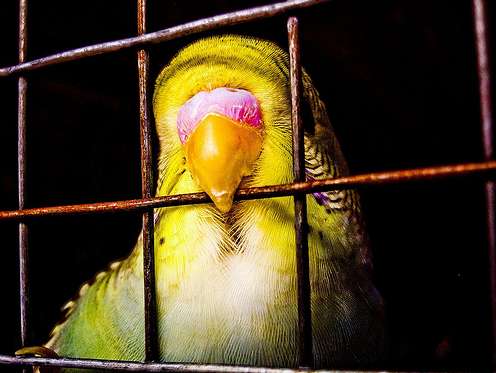FWP:
SETS == EXCLAMATION
BONDAGE: {1,5}
The commentators' almost unanimous view suffers from the same problem that Faruqi complained about in {112,5}: it's 'devoid of pleasure'. In addition, it basically ignores the powerful little word bhii . The cure for such limited interpretations is not far to seek: pay closer attention to every word, every nuance, every grammatical possibility of the verse; and ask yourself why Ghalib would have expected a hearer to say vaah vaah .
Here, the central axis of the verse is surely the contrast between a groaning, wailing, suffering cry [naalah-e zaar]; and a beautiful, melodious, fortunate voice [navaa]. In the first line, the beloved is enjoined to fear (the moral power of) her tormented lover's lament, and to 'respect the Lord' by fearing divine punishment and therefore treating her lover less harshly. In addition to threatening her with God's justice in the first line, the lover goes on in the second line to take a new tack: he seeks to cajole the beloved and beg her compassion. And here, in true Ghalibian style, we have two rueful, all-too-appropriate readings to choose from.
In (2a), there's an implicit mujhe : 'After all, you ought to pity me, because I'm more wretched even than a captive bird. I have only groans and wails and vain cries for justice, while a captive bird has a melodious voice [navaa], and may sing very sweetly and even be loved for its song; it may enjoy a luxurious life in its cage, while I live in constant torment. But still, be warned-- the Lord will hear my laments!'
By contrast, (2b) paints a very different picture of the (newly?) captured bird. 'After all, you ought to pity me and treat me kindly and show compassion. You can't expect me to sing sweetly, just as a newly captured bird has no 'song' to express his misery and suffering. You should pity me for my inarticulate wretchedness.'
Still, there's no denying that that bhii is interpretively awkward.

Nazm:
That is, after all, this lament is a lament-- it's hardly the mourning of birds, that it would have no effect! (121)
== Nazm page 121